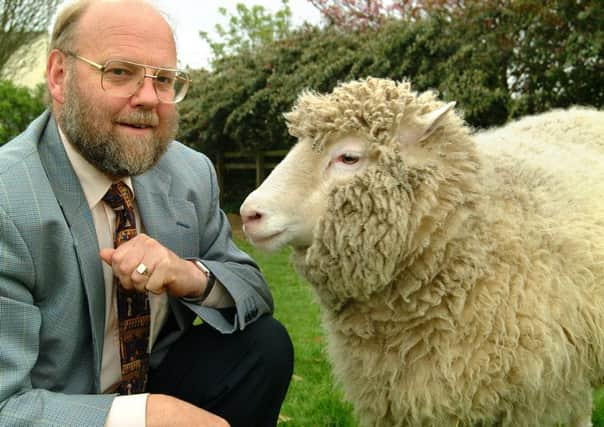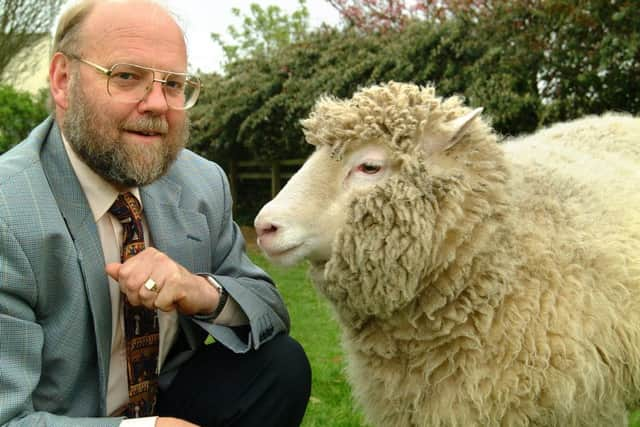Dolly the sheep scientist diagnosed with Parkinson's disease


Professor Sir Ian Wilmut, from Edinburgh, came into the spotlight when he unveiled Dolly in 1997 at the University of Edinburgh’s Roslin Institute. She was the first ever mammal to be cloned from an adult cell.
Dolly’s birth in 1996 paved the way for other scientists to work on a new research initiative looking into how to cure diseases such as Parkinson’s.
Advertisement
Hide AdAdvertisement
Hide AdBut now, it has emerged that Sir Ian has been diagnosed with the disease himself.


Speaking on World Parkinson’s Day, the 73-year-old said that he was “happy to act as a guinea pig and either donate tissue or try new treatments” after doctors detected the disease four months ago.
He told the BBC: “There was a sense of clarity, well at least now we know and we can start doing things about it.
“As well as obviously the disappointment that it will possibly shorten my life slightly, and more particularly it will alter the quality of life.


“I’ve never been a Munro bagger but we live in the Borders and I like to walk. I asked my consultant last week, if I recovered my strength would you think it reasonable to aim on walking four or five miles a day, for several days.
“He was rather discouraging, as it is something I would miss if he proves to be right.”
The scientist has previously admitted that widespread use of stem cell treatments is still likely to be “decades away”.
But he insists he remains hopeful for a new research project involving Edinburgh and Dundee universities.
Advertisement
Hide AdAdvertisement
Hide AdBorn in the summer of 1996, Dolly the sheep was unveiled in February 1997 and a new era of innovation began.
Her introduction to the world not only sparked a media storm, but also inspired a new generation of scientists.
Dolly – who was put down in 2003 after a short illness – is now on display at the National Museum of Scotland.
